







Biological Sex & Gender & Gender Identity Knowledge

What Is LGBTQIA+?
What To Do When Your Kids Walk In On You Having Sex? My kids Watched Porn. What Do I Do? 68-71 62-67
What To Do When Your Children Comes Out To You? 72-79
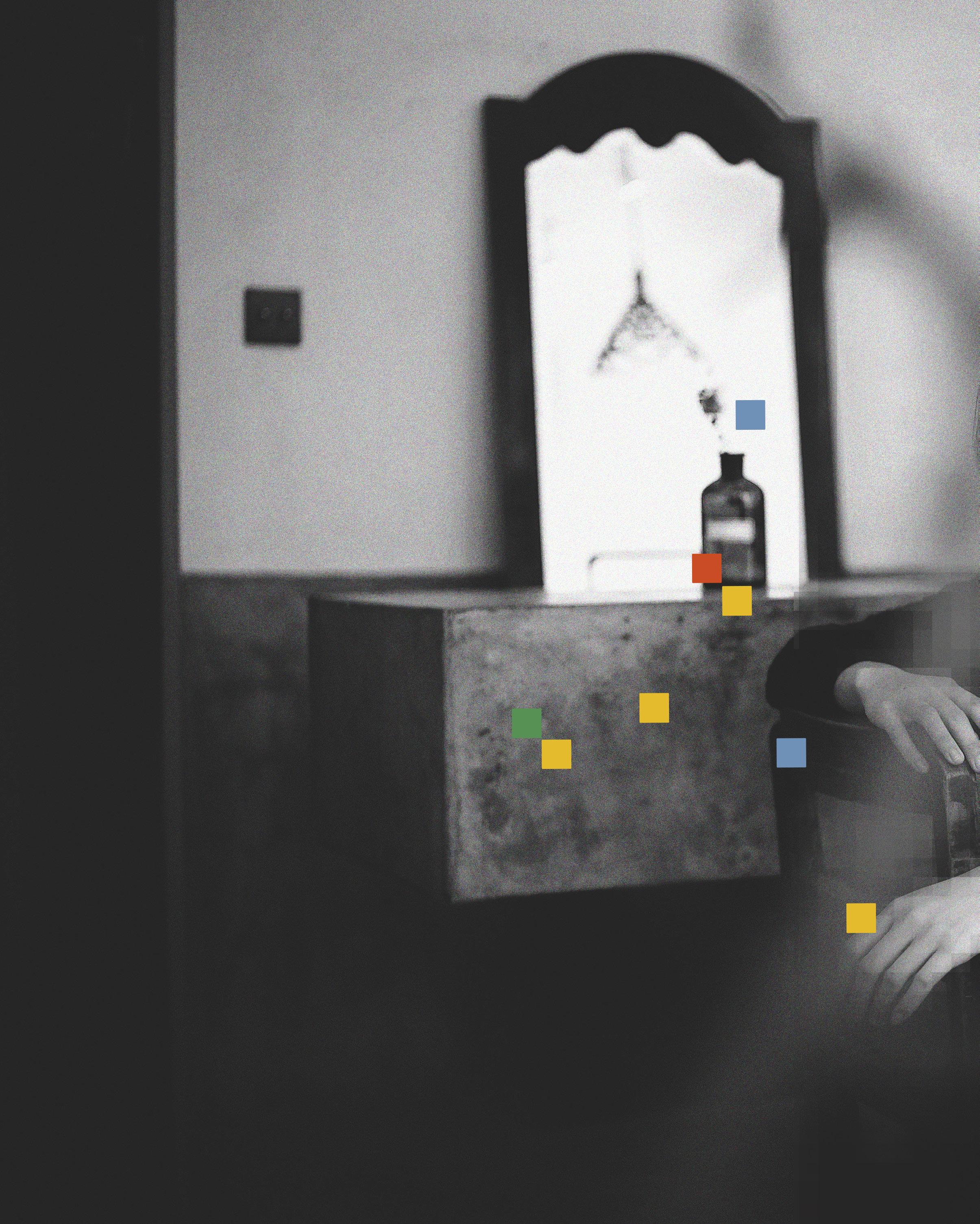

China has strengthened its legal system over recent decades; however, efforts to challenge traditional gender roles and notions of rape have been comparatively minimal.
Chairman Mao famously proclaimed that "women hold up half the sky," and the state, led by the Party, claims to have liberated women. Nevertheless, a double standard concerning rape generally persists for women.
Globally, rape statistics are notoriously difficult to quantify, and China is no exception. The U.S. Department of State reported 31,833 rapes in China in 2007, though no official statistics were released by the Chinese government for that year. In 2005, the last year for which official Chinese statistics are available, the reported number was only 15,000.
"Only one out of ten cases that occur is likely to be reported," stated Luo Tsun-yin, a social psychologist at Shih Hsin University in Taiwan, with some estimates suggesting an even higher ratio. Moreover, even if a case is reported, the woman may face pressure from authorities, her family, or the attacker to recant.
"In recent decades, China has fortified its legal system; however, it has made comparatively scant efforts to challenge traditional gender roles and perceptions of rape."

Chairman Mao proclaimed, "Women hold up half the sky," and the Party-led state claims to have liberated women. Nevertheless, women still generally face a double standard when it comes to rape.
Quantifying rape statistics worldwide is challenging, and China is no exception. In 2007, the U.S. Department of State reported 31,833 rapes in China, though the Chinese government did not release official statistics for that year. The last official statistics available from the Chinese government, from 2005, report only 15,000 cases.
"Only one out of ten cases is likely to be reported," stated Luo Tsun-yin, a social psychologist at Shih Hsin University in Taiwan, and some estimates suggest the ratio could be even higher. Even when a case is reported, the woman may face pressure from authorities, her family, or the attacker himself to recant.
Most of these crimes are committed by someone the victim knows. "The 'rape myth' suggests that the victim and rapist are strangers, but real-life cases mostly involve acquaintances," noted Zhang Qi, whose graduate research at the Chinese Academy of Social Sciences focused on media reports of rape. Her MA thesis analyzed hundreds of Chinese legal newspaper reports from 2004 and presented the following data.
Traditional Chinese culture often holds that the woman bears responsibility for an act of rape. This view is prevalent in many regions sharing China's cultural traditions.
"We don't see a lot of research in this field in mainland China," Luo remarked. "We need to compare research from different regions, including mainland China, Taiwan, Hong Kong, and even Singapore, which are all Chinese communities. Although our political and economic systems differ, our cultural views are similar."
The topic is particularly taboo within Chinese culture. An old saying, "To die of hunger is a small matter, but to lose your chastity is a huge matter," still resonates in contemporary culture. Traditional gender stereotypes portray men as possessing a sexual drive that women, presumed to lack desire, must resist. According to this view, if a woman is raped, she must have somehow invited it.
"A woman may be seen as responsible for her rape if she aspired to date or visit a man's premises, or if she took the risk of being raped by going out alone at night or consuming alcohol, or if she supposedly enticed others with her behavior or dress," explained Linda Wong, Executive Director of the Association Concerning Sexual Violence Against Women in Hong Kong.
The perception that a raped woman is tainted or ruined further compounds the stigma, even within her own family. Luo studied a case where after a girl was raped, "her family would not put her clothes in the washing machine with the rest of the family's laundry because they thought she was dirty."
Wong believes these attitudes reflect broader gender inequality in Chinese culture. "Violence against women is rooted in patriarchal gender relations that assign women roles based not on their capabilities but on norms and values that perpetuate male dominance and superiority," she said. "This inequality is embedded in all societal levels, including employment, education, and social status."
The lack of comprehensive sex education exacerbates the issue. In both mainland China and Taiwan, sex education is superficial and largely focused on biological aspects rather than social implications. "Taiwan lacks substantial sex education," Luo commented. "Therefore, students turn to pornography, which instills many misconceptions, such as 'no means yes' and 'all girls want sex.'"
Laws pertaining to rape, while acknowledging the crime, largely reflect cultural perceptions. "In China, only women can be victims—men cannot be," Zhang explained.
These laws have not been updated in over a decade. "The Criminal Law in China was enacted in 1979 and revised in 1997 to merge the crime of fornication with an underage girl into the crime of rape," Zhang stated. "Some judicial interpretations occurred in 2003 and 2004. Since then, no modifications to the laws have been reported." Sentences for rape range from three years in prison to the death penalty, although there are loopholes in the latter.
"The punishment can be a death penalty with a two-year reprieve and forced labor, which in Chinese law allows for the sentence to be adjusted based on the criminal's behavior during the twoyear period," explained Zhang. "In recent years, there has been a decline in the use of the death penalty, so rapists are mostly given a death penalty with a two-year reprieve and forced labor."
However, evidence suggests changing dynamics. Several domestic and international groups, including government-sponsored organizations like the All-China Women’s Federation, are advocating for societal and legal changes.
"There have been a number of government initiatives, and there is a very strong movement from the All-China Women’s Federation to press for more resources for women who are victims of sexual assault or rape," said Sara Davis, the executive director of AsiaCatalyst, a nonprofit organization that supports NGO startups in Asia.
Several centers also provide emergency care and support for women. Many major cities have crisis hotlines, and crisis centers offer counseling and resources to assist victims. Other organizations, including the aforementioned federation, address various women's issues in China.
The outrage surrounding high-profile cases may also contribute to growing awareness of the issue. Last April, a case involving five "girl hunters," men who waited outside schools for potential victims, went to trial and awaits a verdict. Four government
officials, a school teacher, and a taxi driver were charged with raping several young girls and forcing them into prostitution gangs. Last year, riots protested a cover-up by Guizhou police when they declared a girl’s death a suicide, though she had been raped and murdered.
But despite legal changes and the increasing availability of resources for victims, many agree that social change is most crucial.
"The progress in culture and society may not have kept pace with the progress in legislation," Luo noted.
Wong concurred. "Support services such as psychological counseling, medical, health, and legal services are indeed necessary, but these address practical rather than strategic gender needs. They will not empower women to take greater control in their own contexts. They will not change attitudes, behaviors, and power structures," she stated.
Yet, there is hope for the future.
"We’re seeing a lot of changes in China right now, in terms of growing awareness of human rights and the rule of law... it’s true that it’s a very patriarchal society and that women’s rights are not taken very seriously, but that can change pretty quickly," Davis commented. "Cultures are very powerful but they are not immutable. Cultures change all the time."
Paxcely Marquez is an undergraduate at California State University, Long Beach.
Xiangzhen Lu and Xuelu Qin contributed to this article.
*Further information on Zhang Qi’s research on this subject, including that found in the charts, can be found in Zhang Qi, (2007).”Content Analysis on Rape Crime News in Chinese Legal Newspapers”,Wang Jinling eds. Report on Women Development in China:Women and Media, no.2(2007),Beijing:Social Sciences Academic Press,pp.103-150


"National legislators and political advisers have called for raising the age of sexual consent from the current 14 years to 16."

National legislators and political advisors have advocated for raising the age of sexual consent from the current 14 years to 16.
"Sex education is scarce in China, and many girls are not aware of how to protect themselves at the age of 14," stated Zhu Lieyu, a lawyer from Guangdong province and a deputy to the National People's Congress.
The age of consent is the legal age at which a young person can consent to sexual activity.
Age of consent laws cover all forms of sexual activity, ranging from kissing and fondling to sexual intercourse.
In China, the age of consent is 14, meaning that for young people under 14, all sexual activities, regardless of consent, are considered criminal offenses.
Xu Juehui, another national lawmaker who also proposed raising the age of consent, argued that while juveniles may be physically mature at age 14, they often lack the mental maturity necessary for sexual activities due to insufficient education on sex-related morality and self-respect, provided by family, school, and society.
"This lack of education leaves some minors who experience physical sexual impulses but are not mentally prepared for sex vulnerable to sexual abuse, without adequate legal protection," Xu explained.
In addition to advocating for raising the age of consent from 14 to 16, Zhu also suggested adopting specific case-based standards for the age of consent.
"In most cases, the age of consent should be raised to 16. However, if the sexual abuser holds a position of trust, such as the victim's teacher, the age of consent should be set at over 18 to better protect juveniles," he said.
"A 16 or 17-year-old may not be able to truly consent to sexual activity, particularly if the abuser is in a position of trust or authority, such as their teacher or coach, because the young person is dependent on the abuser," Zhu noted.
"In many cases, defendants often claim that victims aged between 14 and 18 'consented' to have sex with them, which disregards the interests of the victims," Zhu added, highlighting that such cases are common in relationships involving trust, authority, or dependency.
China's justice departments have intensified efforts to combat sexual assaults on juveniles in recent years. In 2013, the Supreme People's Court, the Supreme People's Procuratorate, the Ministry of Public Security, and the Ministry of Justice issued a notice stipulating that individuals with special responsibility for juveniles older than 14, such as their teachers, doctors, or guardians, will be convicted of rape if they engage in sexual activity with them.
"In cases involving a guardian and a ward, we advocate for a follow-up protection system that can assist these young victims both physically and emotionally after the perpetrators are prosecuted," said Sun Xuemei, co-founder and head of the Girls Protection Foundation.
Huang Qi, a member of the Chinese People's Political Consultative Conference National Committee and an associate professor at Shanghai International Studies University's Law School, suggested that individuals convicted of sexual assault should be prohibited from working in certain fields after their release from prison.
"They should be barred from working in organizations, companies, or other public sectors serving juveniles. Especially for kindergartens and infant care facilities, strict regulations preventing those with such criminal records from working there are absolutely necessary," she emphasized.
1. The age of sexual consent in China is not reasonable. Therefore, refrain from blaming your children if they engage in sexual activity over the age of 14.
2. Trust and comfort your children.
3. Preserve evidence and contact the police. Stay with them at all times.
4. Seek advice from a lawyer and request professional guidance.
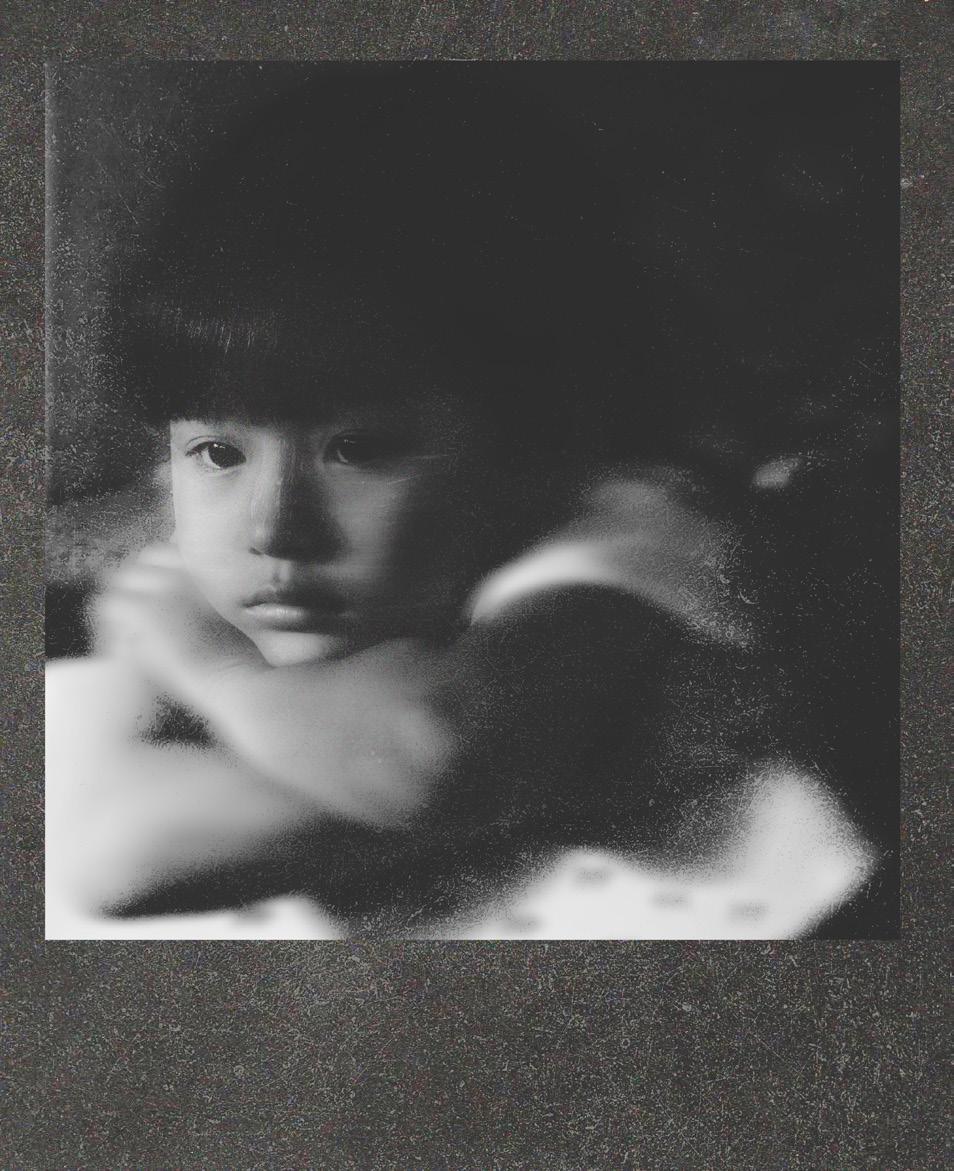





"This incident fully exposed the serious lack of guardianship and sex education both at home and in schools, and it also made people acutely aware of the importance and urgency of sex education for minors."
By Chunxiao WangDec 7th 2022
Recently, a 16-year-old junior high school girl in Zhenxiong County, Zhaotong, Yunnan Province gave birth at school. She claimed to have been sexually assaulted by her classmate's father on multiple occasions.
On May 25th, in a detailed update, Zhenxiong police disclosed that following a thorough investigation, Cai Mohong was suspected of a significant criminal act. In response, the Zhenxiong County Public Security Bureau has initiated compulsory criminal detention measures against Mohong, and the legal proceedings are continuing to unfold as further investigations are carried out.
This unsettling incident has brought the persistent issue of underage sexual assault back into the spotlight, reigniting widespread public debate and concern. This case is particularly disturbing amid the backdrop of rising cases of crimes against minors. In 2021, prosecutorial bodies across the nation charged 60,553 individuals with crimes against minors, a notable increase of 5.69% compared to the previous year. Out of these, 27,851 were accused of sexual assault crimes, highlighting a troubling trend that demands urgent attention.
Following this incident, Zhang Meimei, a respected member of the China Qing'ai Engineering Academic Committee and an associate professor at the School of Psychology of Capital Normal University, has called for a balanced approach to address the issue. Zhang emphasizes the importance of strict legal penalties for those found guilty of such heinous acts. However, she also highlights that punitive measures alone are insufficient. Zhang insists on addressing the deeper societal and educational shortcomings contributing to these tragedies. She advocates for a comprehensive strategy that focuses on punishing perpetrators and preventing future incidents through enhanced guardianship and robust sex education programs.
Zhang's recommendations suggest that improving sex education in schools and families could play a crucial role in protecting minors. By educating young individuals about their rights and how to protect themselves, society can create a more secure environment for its younger members. This approach not only helps prevent sexual assaults but also empowers minors to seek help and report abuse without stigma.
As this case unfolds, it serves as a stark reminder of the vulnerabilities minors face, highlighting the collective responsibility of the community, educators, and policymakers to foster a safer environment for children. This incident demonstrates the urgent need for systemic change and could catalyze significant educational and legal reforms to protect minors from sexual assault.





According to media reports, on May 4th, a 16-year-old junior high school girl in Zhenxiong County suffered a massive hemorrhage when she gave birth in the school dormitory. After hearing the baby crying, her aunt found her by following the sound, then contacted the principal and rushed her to the hospital.
The girl told herself in the video that it was Cai Mohong, the father of a classmate in the next village, who violated her. She was still in the sixth grade at the time of the incident. She took Cai Mohong's van to school. On the way, Cai Mohong forced a relationship with her. Afterwards, he threatened her not to tell anyone.
The girl's cousin told the media that because of this incident, their family was controversial in the local area and even personally attacked. In the follow-up, they plan to help their sister change her name and send her away from local life.
On May 25th, the Zhenxiong County Public Security Bureau of Yunnan Province reported that at 10 o'clock on May 6th, the Huashan Police Station of the Zhenxiong County Public Security Bureau received a report from Huang Moujun, a villager in Huashan Township, that his cousin Huang Moumou was raped by Cai Mouhong, a villager in the same village. The Zhenxiong County Public Security Bureau accepted the case and immediately launched an investigation, and filed a case for investigation on May 7th.
After investigation, Cai Mohong was suspected of committing a major crime. At present, the Zhenxiong County Public Security Bureau has taken compulsory measures for criminal detention, and the case is being further processed.
Liu Changsong, a lawyer at Beijing Mugong Law Firm, stated that the police have already filed a criminal case and the next step will be to collect various types of evidence to determine whether the suspect forced the girl into non-consensual sexual relations. The investigation will focus on establishing the parent-child relationship, gathering the victim's statement and the suspect's confession, along with other relevant evidence. If the facts are clear and the evidence is deemed sufficient to substantiate a crime, the case will be forwarded to the prosecutorial organ for examination and prosecution.

Liu Changsong told China Newsweek that although the victim was not a young girl, if Cai Mohong forced her to have sex with him, it would still constitute rape. According to the victim's statement, Cai Mohong committed three rapes. If it can be confirmed, he can be sentenced to more than 10 years, life or death penalty according to the "bad circumstances of raping a woman". Due to the circumstances of raping underage women, causing girls to get pregnant and give birth, they can be given a heavier punishment as appropriate.
Girls in junior high school gave birth at school, and the school and their families didn't notice it, which shocked and saddened many netizens. Some people also questioned why the victim didn't resist in time, and the fact that she was pregnant unexpectedly was not discovered until after giving birth.
According to Bai Lu, an expert of China Qing Ai Engineering Academic Committee, secretary general of China Sexology Association Youth Sexual Health Education Committee and director of China Family Education Association, it is very difficult for victims to resist when sexual assault occurs. Even so for adults, it is even more difficult for underage children. At the same time, if a child has never learned such knowledge and methods, the possibility of her/his self-help is almost zero.
According to Zhang Meimei's analysis, victims have not received enough sex education, including the awareness and methods of self-protection, telling parents or teachers when they are forced to have sex, and that sexual offenders should be tried by law. After having sex, a victim may become pregnant. If a victim has had sex and does not have a menstrual period, they should consider the possibility of pregnancy, how to protect themselves if they do not want to become pregnant, and seek medical attention if their life may be in danger due to giving birth.
"At present, many parents, especially those in rural areas, lack knowledge on how to discuss sex education topics with their children. It is urgent to disseminate relevant information to rural parents," Zhang Meimei stated. She emphasized that given the widespread lack of understanding among parents in both rural and urban areas, schools and teachers must shoulder the responsibility of providing sex education to students and even parents simultaneously.
Gou Ping, a professor of psychology at Chengdu University and director of the Sichuan base of the Qing'ai Project, highlighted that the term "sex education" was initially introduced into national laws and regulations for the purpose of preventing sexual assault. Therefore, it is legally mandated for schools and kindergartens to at least provide age-appropriate sex education to minors to enhance their self-protection awareness and ability to prevent sexual assault and harassment.
The Law on the Protection of Minors stipulates that parents or guardians should pay attention to the physical, psychological, and behavioral well-being of minors, and educate them with healthy thoughts, good conduct, and appropriate methods. Schools are required to offer guidance on social life, psychological health counseling, and adolescent education tailored to the developmental characteristics of underage students. Additionally, safety systems should be established, safety education for minors should be reinforced, and measures should be implemented to ensure their personal safety.
Liu Changsong remarked, "In this case, the parents of the victimized girl are older and have a low level of education, which likely resulted in a complete lack of sexual knowledge and protection education for the girl."


The prevention of sexual assault against minors has become a prominent social concern in recent years. During the National People's Congress sessions this year, several representatives proposed strengthening sex education or sexual assault prevention education, advocating for its inclusion in the nine-year compulsory education system to safeguard more children from harm.
Liu Li, deputy of the National People's Congress and director of the Liu Li Health Counseling Center in Shushan District, Hefei, proposed including sexual assault prevention courses in compulsory education, aiming to equip children with knowledge to protect themselves.
Despite such proposals, Liu Li highlighted the current lack of national and institutional arrangements for sexual assault prevention education in China's compulsory education system. She urged for the implementation of laws and regulations, such as the Law on the Protection of Minors and the Regulations on the Protection of Minors' Schools, to ensure that schools and kindergartens provide age-appropriate sex education, thus enhancing minors' awareness and ability to prevent sexual assault and harassment.
Zhang Meimei echoed similar sentiments, stressing the need for primary and secondary schools to prioritize sex education. She suggested imparting knowledge about the body, gender, relationships, safety, and aesthetics through various methods such as special classes, lectures, subject integration, and class meetings. Zhang also advocated for teacher training programs to ensure educators are equipped with the necessary concepts, knowledge, and methods of sex education.
Furthermore, Zhang emphasized the importance of parental sex education to counter prevailing misconceptions and prejudices. She called for additional training on student and family sex education content in college education programs and encouraged social organizations and qualified individuals to conduct parent training programs, particularly in rural areas.


The gay activist Harvey Milk was once asked by a young gay man what he could do to help the movement. He said, “Go out and tell someone.” In the era of social media, you don’t have to hit the streets or wave flags to participate in social action. For me, multimedia stories are powerful tools for changing people’s minds and souls, one person at a time. When individuals are ready to share or listen to these stories, I’ll be there as a gatekeeper, providing access to sources of hope.
Mengjue “Ashley” Jiang shares her story of coming out in China and how a lack of knowledge about the LGBT population influenced her decision to start OutChina.
ByFeb 3rd 2022

Mengjue “Ashley” Jiang shares her story of coming out in China and how a lack of knowledge about the LGBT population influenced her decision to start OutChina.

It’s a sunny afternoon at a café near the Los Angeles LGBT Center in West Hollywood. I am speaking with Xiaoyu, who has chosen to be identified by her first name only, a 22-year-old lesbian activist from Guangdong province in Southeast China. She tells me her college diploma was confiscated because she openly proposed to her girlfriend on campus in Guangzhou. “My parents even took away my passport and ID card because my teacher told them to,” she says. I tremble as I listen to her story, all the while with my camera rolling.
Shock overwhelms me every time I interview LGBT activists from China. Before meeting them, I believed my country was doomed, and that there was little I could do about human rights issues in China. “To construct a socialist harmonious society” is the Chinese Communist Party’s guiding principle, but in practice, there is little room for advocacy and activism.
But Xiaoyu is not alone. Even in 2017, electric shock treatment is still used as “gay therapy” in parts of China. It was widely reported in 2014 that a former “patient” named Yang Teng fought back and sued the clinic that once “treated” him, winning the case and bringing attention to the situation. Furthermore, some Chinese college textbooks characterize homosexuality as a mental illness. A college student who goes by the alias Qiu Bai appealed to the court three times to remove these books but received little response. LGBT groups struggle to register as NGOs, and related events are often shut down without explanation.
The discrimination persists, but so does our social activism. Regardless of the severity of censorship or the cruelty of oppression, an LGBT movement is unfolding in China. It might be challenging for people living in oppressive social environments to see it, but for me, an international Chinese student residing in Los Angeles, the momentum is clear…

On OutChina, hear the story of Eros Lee who spent 13 years as a closeted music teacher.
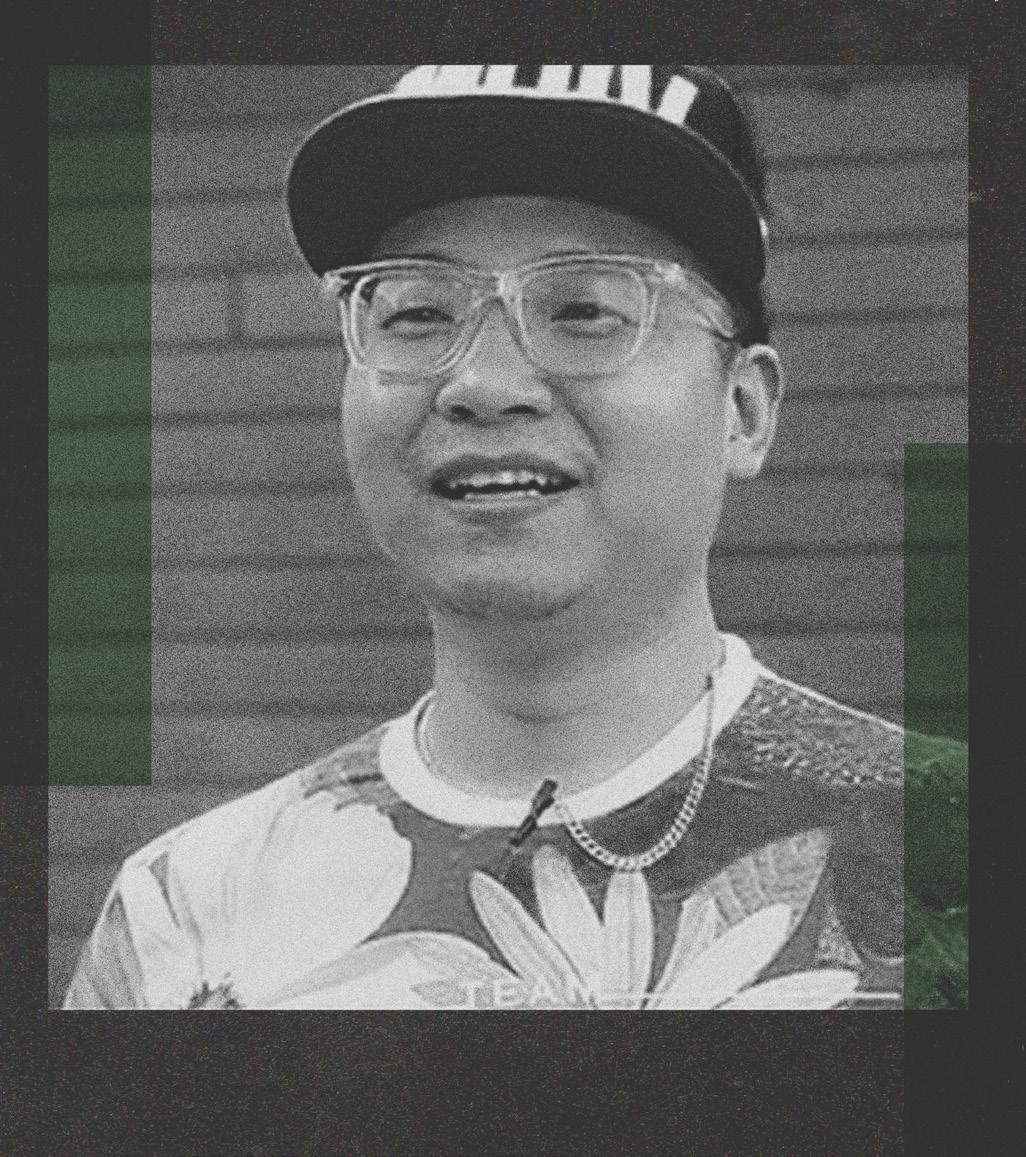
I founded OutChina in September 2016 due to my extensive involvement in China’s LGBT community. However, I never imagined that I would one day become a digital storyteller of this unprecedented human rights movement.
At the age of 18, when I first realized I was in love with a girl, I didn’t even dare to utter the word “homosexual.” At that time, I believed my ex-girlfriend and I were the only lesbians in Shanghai. Yet, it is estimated that there are over 70 million LGBT individuals in China. If China’s LGBT population were a country, it would surpass the entire population of France. However, many Chinese claim they rarely encounter an LGBT person in real life.
OutChina's mission is to enhance the visibility of China's LGBT population. Our world is rife with uncertainties and complexities, appearing daunting at times. As political activist Marshall Ganz once said, “Participating in a social action not only often involves a rearticulating of one’s story of self, us, and now, but also marks an entry into a world of uncertainty so daunting that access to sources of hope is essential.” I aim to share this hope through my work because when I first came out, there was little hope for me;
the process of self-identification was fraught with tears. However, I was fortunate to study gender politics at Sciences Po Grenoble in France in 2014, where I learned that gender and sex are distinct concepts and that girls don’t have to conform to wearing pink. Most importantly, I discovered that it’s okay to embrace who you are and love who you want to love.
During my time in France, I witnessed a massive anti-gay marriage rally for the first time in my life. At Place Bellecour in Lyon, I observed hundreds of people marching, shouting, and waving flags to protest against the 2013 legalization of same-sex marriage in France. This scene shocked me and reignited my long-dormant passion for social justice.
These experiences led me to become an active member of the LGBT community in my hometown of Shanghai and my adopted city of Los Angeles. Over the past three years, I have heard countless moving stories that have compelled me to share them with the rest of the world. Consequently, I have conducted interviews with Chinese activists and individuals, sharing their videos on OutChina.
The website has garnered 45,000 views thus far, and the stories continue to pour in. Additionally, I launched a campaign called “OutChina | Faces,” which aims to collect 2017 black-and-white selfies of China’s LGBT individuals by the year 2017. The campaign invites people to view the faces of these individuals and question whether they deserve fewer rights than any other human being. It also establishes a virtual community for LGBT individuals and allies to connect and find support.
“OutChina | Faces” immediately gained traction in 2016. People were astonished by the bravery and honesty of the participants. A college student from Jiangxi province in Southeast China even sent me a lengthy email outlining her own initiatives inspired by the project in her small town. “Even though I raised little money for my project, it was still meaningful. I want to record stories and share them with others, just like you,” she wrote.
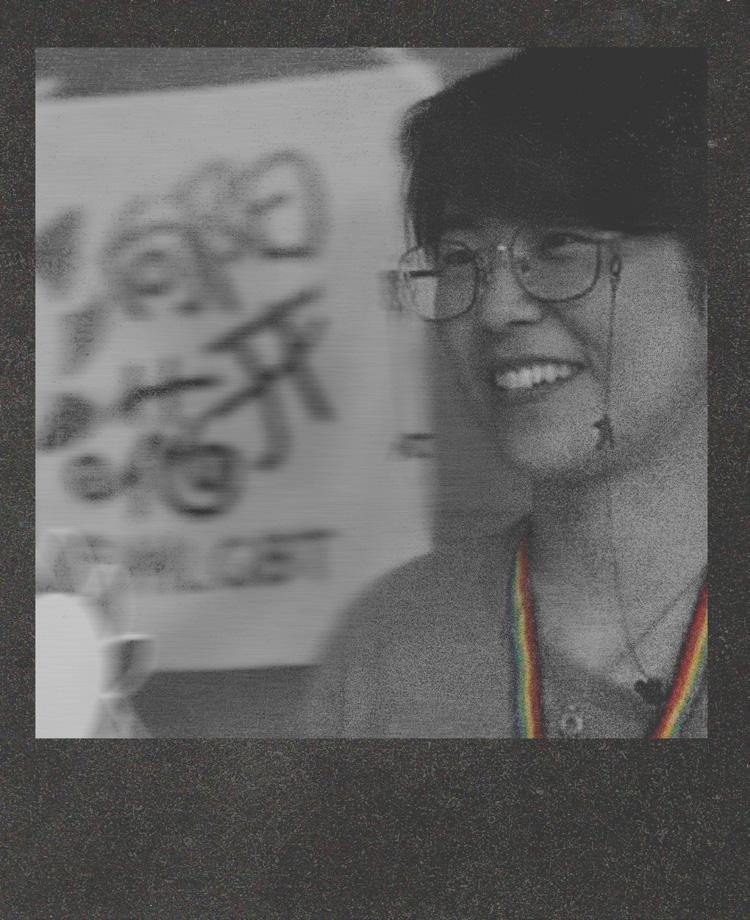
The gay activist Harvey Milk was once asked by a young gay man what he could do to help the movement. He said, “Go out and tell someone.” In the era of social media, you don’t have to hit the streets or wave flags to participate in social action. For me, multimedia stories are powerful tools for changing people’s minds and souls, one person at a time. When individuals are ready to share or listen to these stories, I’ll be there as a gatekeeper, providing access to sources of hope.
In China, where tradition reigns, homosexuality is no longer taboo. What is the view from those living in the country?
By Steffi LauMarch 10th 2022



Tan:
"I think some day if gays can get married in China, that will be perfect.
I don't think it will include my lifetime, but that's just my hope."
Hong Kong native Joe Lam knew he was different. As a 14-yearold, he began to wonder if he was gay, confused by his attraction to boys. But with no portrayals of gay people in the media, no discussion of gays and no Internet, he wasn’t quite sure what he was. He only knew he was different.
When he was 21, Lam traveled outside of Hong Kong for the first time. In London, he witnessed gay men holding hands on the street, something he had never seen before. Having been exposed to a different world, he returned to Hong Kong and immersed himself in a new life.
He was soon living with his boyfriend and had come to terms with being gay. Yet he had still to confront one major obstacle – he hadn’t come out to his family, worried how his traditional Chinese family would react. For New Year’s dinner, he asked if he could bring his roommate. His mom said yes.
“Let’s be honest, he’s my partner,” Lam told his mom.
“Of course I know, I’m your mother,” his mom replied.
Today, 35-year-old Lam is the publisher of Dim Sum Magazine, Hong Kong’s first gay magazine, as well as festival director of the Hong Kong Gay and Lesbian Film Festival. Though his parents struggled with the idea of him being gay at first, Lam said they have come to accept it.
“My mom said to me, as long as you’re happy, I’m fine,” Lam said.
While Hong Kong has long been ahead of China, Lam’s story is an example of China’s changing attitudes towards homosexuality. In a country where homosexuality was once a taboo subject, increasing numbers of Chinese are becoming more tolerant of homosexuality. Homosexual intercourse has been legal in Hong Kong since 1991. Prior to this, sodomy was illegal, instituted by British colonial rule. Until 2005, there was also an unequal age of consent in Hong Kong. While the age of consent for heterosexual sex was 16, it was

set at 21 for sex between males. However, in 2005, it was found to violate the right to equality and was struck down.
As for mainland China, well into the 1990s, homosexuality was considered both a crime and a mental illness in the People’s Republic. Gays were prosecuted under the “hooligan” law while the Chinese Psychiatric Association labeled it a mental disease.
In 1997, the Chinese government abolished the hooligan law, an act considered by most to be a decriminalization of homosexuality. In 2001, the Chinese Psychiatric Association removed homosexuality from its list. The association’s evidence included a 1999 study that followed the lives of 51 Chinese gays and lesbians over the course of a year. The group found that only six of the subjects had emotional disorders.
Since then, the Chinese gay community has rapidly expanded, with dozens of gay bars and hangout spots across the country, hundreds of Chinese gay websites, and many lesbian, gay, bisexual and transsexual (LGBT) organizations. These groups help organize gay rights campaigns, HIV/AIDS prevention efforts, film festivals and pride parades.
Public attitudes are also changing, with many people growing more accepting of gays. The vast majority of educated, young people in urban areas have no problem with homosexuality.
“You’ve got 50 and 60-year-old men coming out, young teenagers coming out, everyone coming out,” says Kenneth Tan, a native Singaporean who has been living in Shanghai for the past seven years. “There is a lot of energy in the scene right now because all these people are coming out for the first time in their life, in the life of the community and the history of modern China. There is a great sense of freshness to the scene.”

In 2003, Fudan University in Shanghai introduced China’s inaugural undergraduate course on gay studies. Following suit, a China chapter of PFLAG, an organization offering support to parents, family, and friends of lesbians and gays, was established in 2007. Concurrently, there was a surge in gay publications and the emergence of numerous "gay" businesses, including restaurants, shops, and establishments, predominantly serving the gay community.
Tong Yu, known as Common Language in English, emerged as a Beijing support and rights group for lesbian and bisexual women in 2005. Its founder, Xu Bin, noted the absence of lesbian groups and only around thirty gay groups at the time. Presently, she estimates several hundred gay and lesbian groups across China.
The Beijing LGBT Center, established in 2008 by four LGBT groups including Common Language, even commenced issuing symbolic “marriage certificates” to gay couples.
In December 2008, Hong Kong hosted its inaugural gay pride parade, attracting approximately 1,000 attendees. The second parade followed in November 2009.
The same year marked the 20th anniversary of the Hong Kong Gay and Lesbian Film Festival.
Lam, the festival director, noted last year's festival drew 6,000 visitors, including mainland Chinese attendees keen on viewing films banned on the mainland. Over the years, Lam observed changes in the gay population.
“We used to see quite a few people wearing big jackets to disguise themselves when entering the cinema, but we’re seeing less and less,” Lam says.
The shift reflects the burgeoning gay community and increasing numbers of individuals coming out in China.
Tan, editor-at-large for the popular website Shanghaiist.com, witnessed the maturation of the Shanghai scene.
“When I first arrived, bars were discreet and had to be quiet, but now we have expansive venues catering to different demographics,” he remarks. “The scene has evolved to the point of notable social stratification.”
China hosted its inaugural gay pride event, Shanghai Pride, in June 2009, featuring plays, film screenings, discussions, and parties spread across one week. The event attracted a few thousand attendees from across China.
Though police monitored the events and plans for a parade were shelved, the event's occurrence underscores China's progress. In contrast, a similar attempt in Beijing in 2004 was suppressed. Tan attributes the success in Shanghai to its distance from Beijing's political center.
“Many thought it wasn't feasible,” says Tan, one of the event's masterminds. “We had a modest start, but it was significant. These individuals have been coming out gradually, and this pride event provides a collective platform.”
Even new terminology has emerged for the gay community, with “tongzhi” for gays (meaning comrades) and “lala” for lesbians. The term “ku” or “ku’er” has also been adopted to mean queer, with a dual connotation of being cool.
Walter Williams, a University of Southern California professor studying gender and sexuality in Asia since 1983, likens China's current stance on homosexuality to that of the U.S. in the 1960s, envisioning China leading in gay liberation.
Homosexuality has historical roots in China, with Daoism emphasizing a balance between yin and yang. Confucianism, while stressing traditional familial duties, did not classify homosexuality as a prohibited practice. Some scholars even suggest that many emperors had male concubines.
“Historically, once the role of getting married and having children was filled, people were free to do what they wanted,” Williams says.
Williams says that many of the negative attitudes toward homosexuality in China are a byproduct of Western colonialism.
“Many people think homosexuality is a European import, but actually it was homophobia that was a European import,” Williams says. “A lot of it was a direct influence from the British coming in establishing colonial power. Many of them were against homosexuals so to avoid persecution, the Chinese took similar attitudes.”
One difference between China and other countries may explain the increasing tolerance of homosexuality: the one-child policy, implemented to stem China’s overpopulation.
“Gays and lesbians fit in quite nicely with China’s population programs,” Williams said. “Why punish people who don’t reproduce when their natural inclination would be to remain non-reproductive? They are model citizens as far as the population policy.”
Another key difference is religion. In the United States, the debate against homosexuality is fueled by Christianity while in Southeast Asia, it’s Islam. However, China has no dominant religion and most Chinese are secular.
“Lack of religion means China in some ways is more accepting,” Williams says. “Any time there is a big cultural change, there will be elements that continue the old way. But to not have a strong institutionalized religion against it allows a gradual evolution of thoughts.”
“Religion doesn’t play such a huge role in social and cultural discourse,” Tan adds. “They don’t look at this thing through a religious or moralistic standpoint. When you come to me and say what I’m doing is a sin, there can be no more discussion because you say what you believe in because God tells you. But in China, there is room for discussion.”
Increasing migration to cities from rural areas may play a role in the opening attitudes toward homosexuality. Many gays like He Xiao and Robin (see Personal Stories above) who originate from small rural towns have only confirmed their sexuality after immigrating to cities for university. In China’s rural areas, homosexuality is mostly not discussed while gay populations are invisible, leaving many gays isolated. Those who come to the city find more resources and can connect with more LGBT people. He, who works in Shenzhen, said many gays choose to work in cities away from their parents for more freedom.
Robin also believes education is a factor. “The higher the education, the easier it is to accept gays,” he said. “They know homosexuality is not a sickness. From what I know, it’s the truth. I’ve changed my school three times, for bachelor’s degree, Master’s, and now Ph.D. Each time, more and more classmates are open-minded toward gays.”
Tan:
"They told me they hoped that I'm not gay, they hoped I wouldn't lead this lifestyle and they hoped I'm not involved with any activists and wouldn't become one. I failed all their hopes in this aspect."
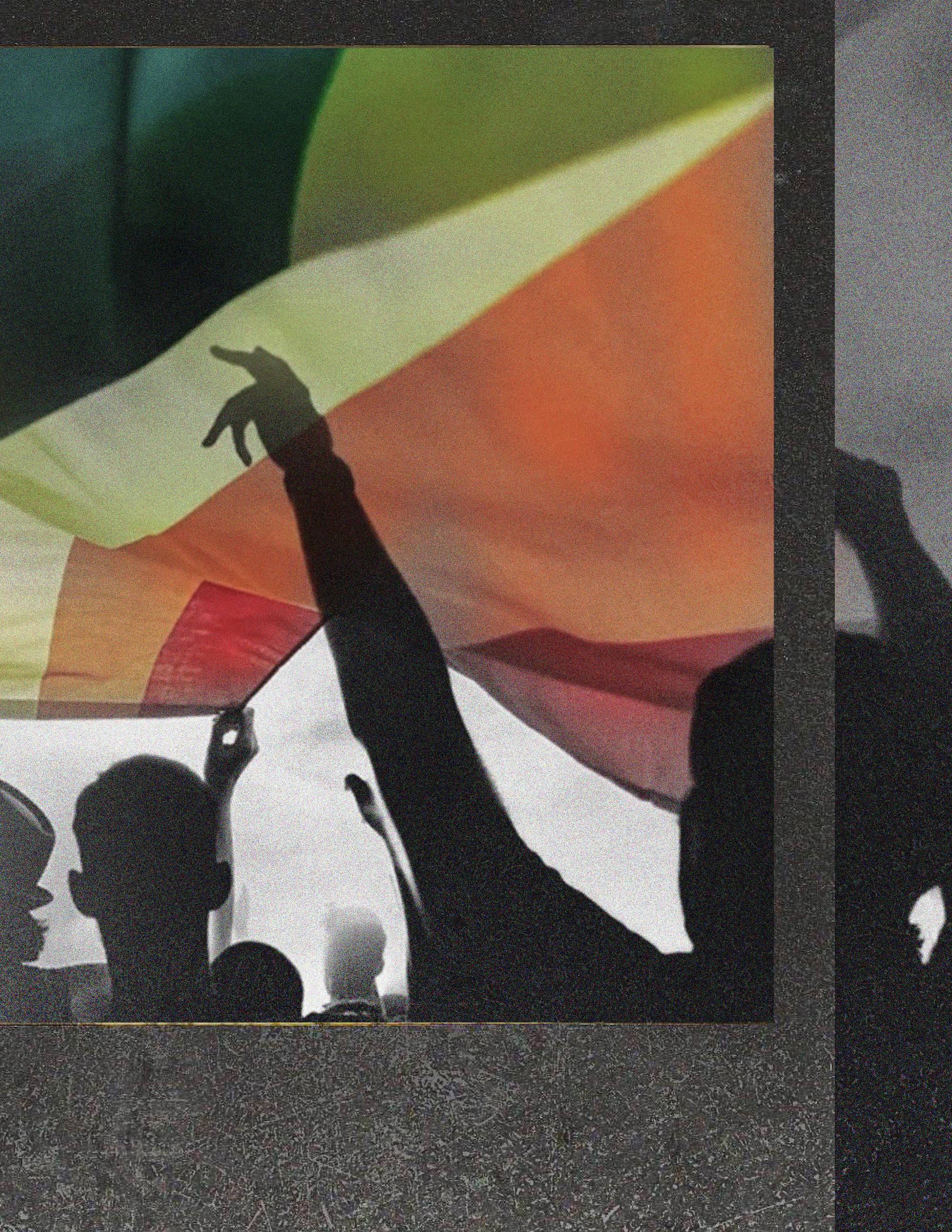
2022 Shanghai Pride.
Shanghai Pride, mainland China’s first gay pride festival.

Some attribute the growth of China’s LGBT scene to the influx of expatriates in China. Hannah Miller, an openly gay woman from the United States who lived in Shanghai for seven years, started the group Shanghai LGBT, which now has 1,000 members. She also helped jumpstart and organize Shanghai Pride. Miller says that although the Chinese gay movement was progressing long before she arrived, the presence of expatriates allows the community to be more open in organizing events.
“If I get in trouble, I can leave,” she says. “Whereas, Chinese people have families, jobs, they’re subject to laws. So having expatriates helps them to be more public in organization.”
Yet while the increased activity in China’s gay community is proof of its growth, much of Chinese society remains stuck in the past, ignorant of homosexuality. Large generational, educational, and societal gaps persist.
“Ninety percent of the people I know don’t come out to their parents because they are afraid of rejection,” says Xu. Though Xu’s parents know she is lesbian, she avoids discussing her sexuality with them.
“The overall atmosphere is one of ‘don’t ask, don’t tell,’” Miller says. “Some people know that members of their family are queer, but if you don’t address it, you are given some level of freedom to live the lifestyle you want to live. If you don’t talk about it, you can pretend nothing happened. Some people think that this system gives more freedom, but it’s unfortunate because it means children feel estranged. There’s no open communication in the family.”
“Some parents know their children are gay, but they still ask them to get married and lead a heterosexual life. Of course some people are afraid of losing their family, so they get married,” Xu says.
“Every Chinese has to get married, it’s such a dominating lifestyle. In China, the pattern of family is not diversified. It’s basically heterosexual marriage that everyone needs to go into whether gay or straight.”
In the past, many gay and lesbian Chinese stayed closeted their whole lives, marrying heterosexuals and having children. Sociologist and sexologist Li Yinhe has dubbed the wives of gay men ‘homowives,’ estimating there are 16 million of them in China.
However, in recent years, there has been a growing phenomenon of lesbians and gays marrying each other and having children. This arrangement is considered to be mutually beneficial, allowing each to please their parents while leading their own lives. Tan even says a new gay bar in Shanghai named The Box serves to match gays and lesbians.
He, a gay man living in Shenzhen, says he would also consider marrying a lesbian to please his parents, though he hasn’t come out to them yet.
“One of my lesbian friends is actually asking me to maybe get married in the future, so that’s an option,” He says. “I will consider that, if I come out to my parents and they won’t accept it and insist I get married.”
Xu says the phenomenon will eventually disappear. “I think it’s a temporary fix,” she said. “It’s a strategy gay and lesbians use to deal with social pressure. To some people, the cost of coming out is too much.”

Even outside the home, ignorance and misconceptions continue to persist. For Xu’s organization Common Language, volunteers went on the streets in Beijing to ask people what they thought of homosexuality. Many said that homosexuality was imported from Western culture while others said that if all of China is gay, China will die out.
Xu (see Personal Stories above) began suspecting she was lesbian in high school, but it wasn't until the age of 25 in 1997 when she first went online that she truly understood her sexuality.
"I was really struggling, trying to find information, and I didn’t know any other gay or lesbians," Xu says. "It wasn't until the late 1990s when the internet was introduced to China that I fully understood it. Lesbian websites started to emerge, and I connected with other people, which greatly aided me in my identity search process. I finally found my identity."
In a country where most newspapers are government-owned and gays aren’t portrayed on television, the internet provided homosexuals with a way to find current information about the gay community and understand their sexuality.
Lam believes the internet has been a catalyst for the gay community, especially the younger generation.
"Because of the internet, younger people know what’s going on in the world," Lam says. "The younger generation is much more open-minded and willing to stand up and fight for rights."
Many Chinese have used gay websites such as gayhk.com and fridae.com to meet partners. Tan helped develop gays.com, coined as the social network for the LGBT community.
For some gays like Robin who remain closeted to everyone, the internet has served as their only outlet. Robin uses gay websites such as gaydar.co.uk to meet gay friends around the world.
“For me, it’s everything,” Robin says. “For many Chinese, the Internet is the only way to contact and find gay friends. We don’t need to hide ourselves on the Internet. I can’t imagine how bad my life would be if I could not use the Internet. It has changed my life.”
Yet, even with the Internet, there is still a need for information.
Lam started Dim Sum, the first gay magazine in Hong Kong, in 2002, hoping to provide people with information he didn’t have growing up.
“It’s really bad when you’re young and alone and can’t find any information on being gay,”
Lam says. “Before, I was always locked in my bedroom and didn’t know what was going on with the world. If I was young and had read this magazine, I would get a bigger picture and realize I’m not alone.”
However, the lack of discussion may have a surprising benefit—there is less violence toward gays in China.
“It’s been shown in more developed countries where awareness of homosexuality is a lot higher, lots of different sections and opposing camps are free to say what they want, a lot of people are free to hold very polarized views,” Tan said. “This conflict can cause a lot of backlash. But you don’t hear of someone getting killed because they’re gay in China.”
Lam attributes the lack of violence to the Chinese culture, saying, “Chinese people are less aggressive. Even if people don’t like something, they won’t do anything.”
Miller thinks there may be violence against gays occurring in China that simply isn’t publicized. However, she does feel that China may be safer for homosexuals.
“I never felt I was in physical danger in China because of my sexuality, but I have felt that in the U.S.,” she said. “If I’m in a rural American town and men there don’t like the fact that I’m gay, they can be aggressive with me, because it is talked about. But in China, that would never happen because they would never bring it up.”
Still, most Chinese gays and lesbians hope that greater discussion about homosexuality will occur.
Lam:
"I came out to my brothers separately, but their reaction was very calm.
Both
asked me
exactly the same
questions: 'Are you happy?' They said as long as I'm happy, they're happy for me."
"The problem is the government doesn’t do enough to inform people about homosexuality," He said. "They won’t encourage or discourage it, but there’s no official information available anywhere in China, which means many people still hold onto the idea from 20 years ago that gay people are sick."
While the government hasn’t necessarily supported gay rights in China, Williams thinks the government has made significant progress. “China has changed more than any other government in the world in such a short period of time,” he says. “It’s certainly one of the most rapid turnarounds of any government. Not that China is perfect, but it has made great strides compared to a decade ago.”
At times, local police will sweep parks that are popular hangouts for gay men, arbitrarily arresting and questioning them. Prior to the 2008 Olympics, Dongdan Park in Beijing was the scene of one police crackdown, where some 40 people were arrested at the popular LGBT cruising spot. However, these efforts mostly occur on a local level and are not actions of the central government.
HIV infection has been rapidly rising in Asia, especially among gay populations. Previously, China turned a blind eye to the problem, but the government has begun cooperating with gay groups to address the issue. It is believed that the 2003 SARS epidemic sparked these efforts, demonstrating the importance of public health.
“The Chinese government has improved its attitude toward HIV/ AIDS,” Williams said. “They used to deny the reality, but they have realized it’s not productive to ignore social issues.”
Williams says that in comparison to countries like Indonesia and Malaysia, China is far ahead. Malaysia enforces anti-gay laws, sometimes leading to police beatings, harassment, and bloody floggings. LGBTs are not allowed to appear on television or any state-run media, while the Islamic faith ensures that most people consider homosexuality immoral.

Although Chinese media coverage of gay activities is not frequent, the government-owned media will occasionally cover LGBT activities. However, gay movies are still forbidden in theaters and on television on the mainland.
“There is a cautiousness about the Chinese government,” Williams says. “They don’t want to make waves. They’re not rabid against homosexuality; they don’t see it as a threat to the future. They just want people to do their work, get along, and be good citizens. That’s great progress compared to a decade ago.”
The majority of people acknowledge that the government has made significant improvements over the years and predict that the government will eventually adopt a positive stance toward homosexuality one day.
“I remember when it was so bad that I’m just so grateful for the changes that have been made,” Williams says. “People’s lives are so much better than 20 years ago. I think what we will see is a move from negative to neutral to positive.”
Shenzhen worker He is confident that China will continue to move forward in the future.
“We are experiencing the same things happening in Europe or the U.S. 20 years ago,” He says. “After a certain time, I think our government will open up and face reality.”
Robin agrees, saying, “It just takes time.”
Steffi Lau is a junior at the University of Southern California, majoring in Public Relations and East Asian Languages and Cultures and minoring in Marketing.
Joseph Saraceno shares data that shows differing social values between generations in China.
By Joseph SaracenoJanuary 25th 2022
Upon arriving in Nanjing last year, I was tasked with completing a "foreign teacher training" in which aspiring educators learned the do's and don'ts of working in China. In our first session, a Ministry of Education emissary sternly warned our cohort that matters involving sensitive social issues—abortion, gay rights, religion— were prohibited from classroom discussion. He suggested that they were to be left strictly between parents and their children because of their intimate nature. Around the same time, the 2017 Social Progress Imperative released their annual evaluation of comfort levels experienced by social minorities. China ranked 142 out of 177, underscoring the unfortunate conventional wisdom that it is not the most open, tolerant, or accepting place for diversity.
I received an emotional email from a female student in my second week on the job. She described in vivid detail how she was taunted in middle school for her interest in reading gay romance novels. Her classmates reviled her as "deviant and disgusting," and when word spread to her parents, they were alarmed and "…contacted the story’s writers and illustrators with insulting words and asked them why they wrote or drew these things to lead kids astray." However, upon entering high school, it appeared as though attitudes on the subject had changed. She wrote that she had encountered others who were open-minded and accepting of many historically stigmatized behaviors.
Because I taught social sciences and humanities in a university setting, issues regarding race, gender, and class naturally arose. It was in these moments when I noticed a profound interest from part of my class. Students would stop me to ask for an explanation of how religion could be such a big deal in American politics or why structural injustices remain so blatant and pervasive to this day. At many times, it even suggested a desire to put forth alternatives to commonly accepted ways of doing things.
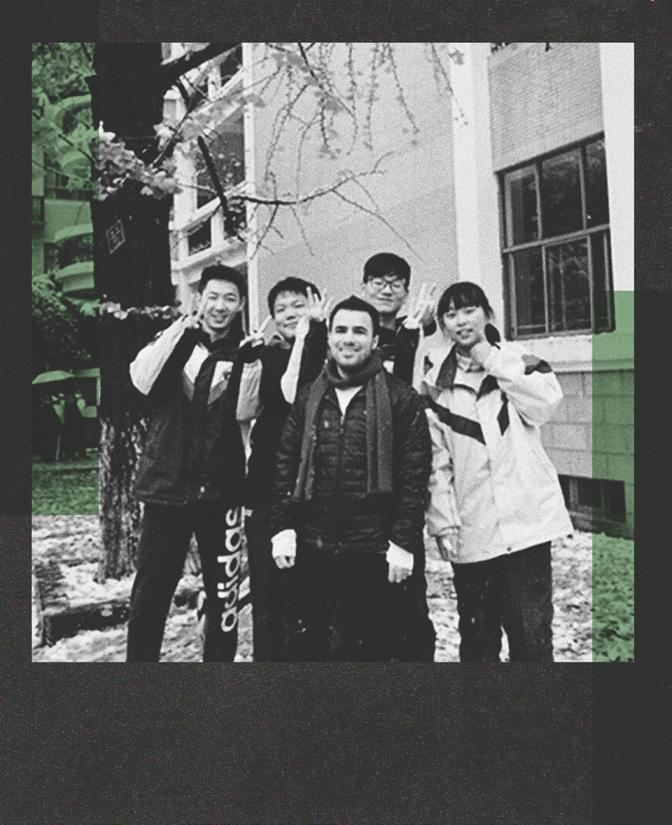

It was in this spirit that I set out to see if the transmission of social values between parents and their children in China may not be as firm as we think. To this end, I conducted a survey of nearly 200 high school students in which they were presented with a statement and tasked to indicate their preference on a five-tiered scale (strongly agree, somewhat agree, neutrality, somewhat disagree, and strongly disagree). They were then instructed to answer the same statement according to what they thought their parents would answer if posed. To illustrate, the students would be posed with something to the effect of: "I would feel uncomfortable if my college roommate was Muslim." Following this, they would dictate the level of agreement for 1) themselves, and 2) what they thought their parents would write. The hope was to draw some rough conclusions based on the differences between the student and "parental" opinions.
It should be noted that, while I was given permission to conduct the survey as part of a university-sanctioned project, that permission did not extend to the direct inquiry of parents. My guess is that speaking to parents directly would have brought unnecessary attention, given the subject matter. As such, one shortcoming of the survey is that the students' impressions of their parent’s personal feelings are not necessarily accurate. That being said, students were given the option of declining an answer if they had no indication of their parent’s opinion on a given issue.
One of the most interesting findings revolved around openness to interracial relationships.
Historically, the number of relationships involving Chinese and other nationalities has been remarkably low — although it has been steadily increasing in recent decades. According to Elaine Jeffreys and Wang Pan, authors of “The rise of Chinese-foreign marriage in mainland China, 1979–2010,” the number of interracial marriages in China grew from 300 in 1979 to its peak at 26,000 in 2001. Even at its apex, however, interracial marriages represented but a small fraction (.00325) of the 8 million total marriages in that year.

As it turned out, both parents and students seemed relatively open to interracial relationships.
On the five-tiered scale (1 being strongly approve and 5 being strongly disapprove), the average parental score was 2.60 while the students were roughly 38% more approving at 1.61. This seems to suggest that this younger generation may be less preoccupied with ethnic homogeneity than previous ones. When asked, my students reported that the increasing prevalence of foreigners and exposure to international media has made interracial relationships more feasible and less extraordinary.
Another interesting finding suggests that attitudes towards the LGBT community might be notably warmer in youth than in their parents.
This would be a welcome change, especially considering a 2016 Peking University survey statistic which found that only 5% of Chinese LGBT+ openly identified as being homosexual Moreover, any examination of social trends would elucidate a longstanding social ambivalence towards homosexuality in China. Some well-explored reasons for this include: a rigid emphasis on traditional familial obligations including marriage, child-rearing and passing on the family lineage; negative portrayal by traditional media sources; and a long history of pathologizing gay people as being either “hooligans” or mentally ill — stigmatization that has facilitated a rise in faux marriages, social isolation and an HIV/AIDS public health crisis.


My study found that youth scored roughly 32% more favorably than their parents in characterizing homosexuality as normal, with scores of 2.38 compared to 3.15.
Similarly, students were 34% more in favor of legalizing gay marriage in China than their parents (2.12 to 3.22). In regard to Chinese companies’ ability to refuse employment to gays on the sole basis of their sexual orientation, students were 19% more opposed than their parents (4.38 to 3.67). These trends seem to indicate a profound softening in attitudes towards the LGBT community. Moreover, post-survey interviews conducted suggested a “live and let live” attitude and a general acceptance that social impositions have been remarkably harsh toward sexual minorities and ought to be reassessed.
Students
were 15% more accepting of the idea of having children with someone from a lower socioeconomic status, with scores of 3.42 compared to 2.99 for their parents.
While this difference is palpable, it is certainly not as profound as other generation differences. When I broke down the analysis on the basis of gender, it appeared that female students were notably less approving than their male counterparts (17% less). This implies, of course, that there is a general expectation of men to provide for their wives and children.

The degrees of religiosity metric demonstrated the closest alignment.
I was fascinated to find that, of all 20 indicators, the degrees of religiosity metric demonstrated the closest alignment. It might come as no surprise that China is one of the more irreligious countries in the world. In fact, according to a 2015 Gallup survey, it ranked at the bottom with nearly 90% of respondents claiming to be either not religious or atheist. While my results are consistent in this regard, students on average were only 5% less affirmative than their parents in response to “I consider myself a religious person” (3.97 to 3.77). Moreover, if a student reported a 5, they were very likely to report a 5 for their parents as well. In other words, the distribution was nearly identical between the two groups — indicating that the transmission of religion (or lack-thereof) is very resistant to change.
One could hypothesize a variety of reasons why the transmission of some social values might be changing. As alluded to above, globalization has surely provided a degree of unprecedented interconnectedness that allows far-reaching communication and exploration. This, in addition to rapid urbanization, has exposed many Chinese to varying ethnicities, sexualities and socioeconomic status. Additionally, international pressures to conform to Western notions of diversity and inclusion no doubt play a role. While I am cognizant of the tremendous challenges that remain, it is my hope that this exposure helps break down illusory prejudices and abstracted notions of “the other.” It is easy to fall into the trap of believing that social conditions are the way they are because of some objectively-correct reason, especially if we are not affected by the burdens imposed by these hierarchies. The growing interest in previously-stigmatized social issues among Chinese youth offers hope that just because something has been, doesn’t mean that it always must be.
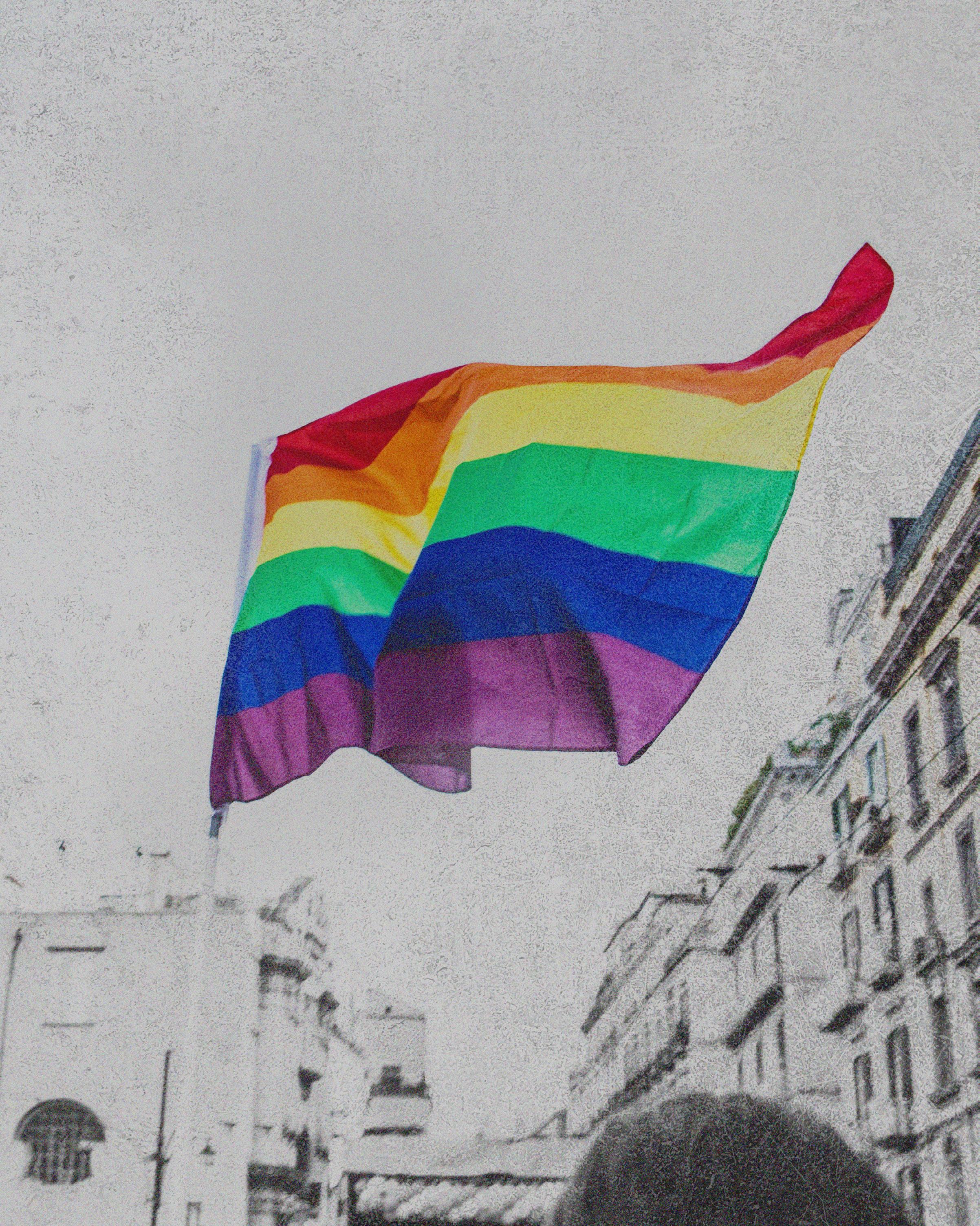


Understanding the distinction between biological sex and gender is crucial. Families, individuals, peers, and communities serve as sources of information regarding sex and gender. Social and cultural norms, along with religious beliefs, play a significant role in shaping gender roles. Each individual's perception and description of their gender identity are unique and warrant respect. Gender roles and norms exert a profound influence on people's lives. Gender stereotypes and roles can have detrimental effects on romantic relationships. It is imperative to confront and challenge one's own and others' gender biases. Homophobia and transphobia inflict harm upon individuals with diverse sexual orientations and gender identities.
There’s a lot more to being male, female, or any gender than the sex assigned at birth. Your biological or assigned sex does not always tell your complete story.
ByPlanned Parenthood January 25th 2022
Only two.
Based on the biological sex, there are female and male.
Three different definitions of gender.
More than sixty genders in this world.
Sex is a label — male or female or intersex— that you’re assigned by a doctor at birth based on the genitals you’re born with and the chromosomes you have. It goes on your birth certificate.

Gender is much more complex: It’s a social and legal status, and set of expectations from society, about behaviors, characteristics, and thoughts. Each culture has standards about the way that people should behave based on their gender. This is also generally male or female. But instead of being about body parts, it’s more about how you’re expected to act, because of your sex.
Gender identity refers to how one feels internally and expresses their gender through clothing, behavior, and personal appearance. This sense of identity typically emerges early in life.
Assigned sex is a label that you’re given at birth based on medical factors, including your hormones, chromosomes, and genitals. Most people are assigned male or female, and this is what’s put on their birth certificates.
When someone’s sexual and reproductive anatomy doesn’t seem to fit the typical definitions of female or male, they may be described as intersex.
Some people call the sex we’re assigned at birth “biological sex.” But this term doesn’t fully capture the complex biological, anatomical, and chromosomal variations that can occur. Having only two options (biological male or biological female) might not describe what’s going on inside a person’s body.
Instead of saying “biological sex,” some people use the phrase “assigned male at birth” or “assigned female at birth.” This acknowledges that someone (often a doctor) is making a decision for someone else. The assignment of a biological sex may or may not align with what’s going on with a person’s body, how they feel, or how they identify.
The factors that determine our assigned sex begin as early as fertilization.
Each sperm has either an X or a Y chromosome in it. All eggs have an X chromosome.
When sperm fertilizes an egg, its X or Y chromosome combines with the X chromosome of the egg.
A person with XX chromosomes usually has female sex and reproductive organs, and is therefore usually assigned biologically female.
A person with XY chromosomes usually has male sex and reproductive organs, and is therefore usually assigned biologically male.
Other arrangements of chromosomes, hormones, and body parts can happen, which results in someone being intersex.
Gender is much bigger and more complicated than assigned sex. Gender includes gender roles, which are expectations society and people have about behaviors, thoughts, and characteristics that go along with a person’s assigned sex.
For example, ideas about how men and women are expected to behave, dress, and communicate all contribute to gender. Gender is also a social and legal status as girls and boys, men, and women.
It’s easy to confuse sex and gender. Just remember that biological or assigned sex is about biology, anatomy, and chromosomes. Gender is society’s set of expectations, standards, and characteristics about how men and women are supposed to act.
Your gender identity is how you feel inside and how you express those feelings. Clothing, appearance, and behaviors can all be ways to express your gender identity.
Most people feel that they’re either male or female. Some people feel like a masculine female, or a feminine male. Some people feel neither male nor female. These people may choose labels such as “genderqueer,” “gender variant,” or “gender fluid.” Your feelings about your gender identity begin as early as age 2 or 3.
Some people’s assigned sex and gender identity are pretty much the same, or in line with each other. These people are called cisgender. Other people feel that their assigned sex is of the other gender from their gender identity (i.e., assigned sex is female, but gender identity is male). These people are called transgender or trans. Not all transgender people share the same exact identity.
IDENTITY = EXPRESSION = SEX
GENDER = SEXUAL ORIENTATION /
Expression
woman-ness
Man-ness
Feminiity
Masculinity
Romantically attracted to...
Women a/o Femine a/o Female People
Sexuality attracted to...
Men a/o Masculine a/o Male People
Anatomical Sex
Female-ness / Male-ness
Sex Assigned at Birth
Male / Female / Intersex
 By The Center
By The Center
January 25th 2022
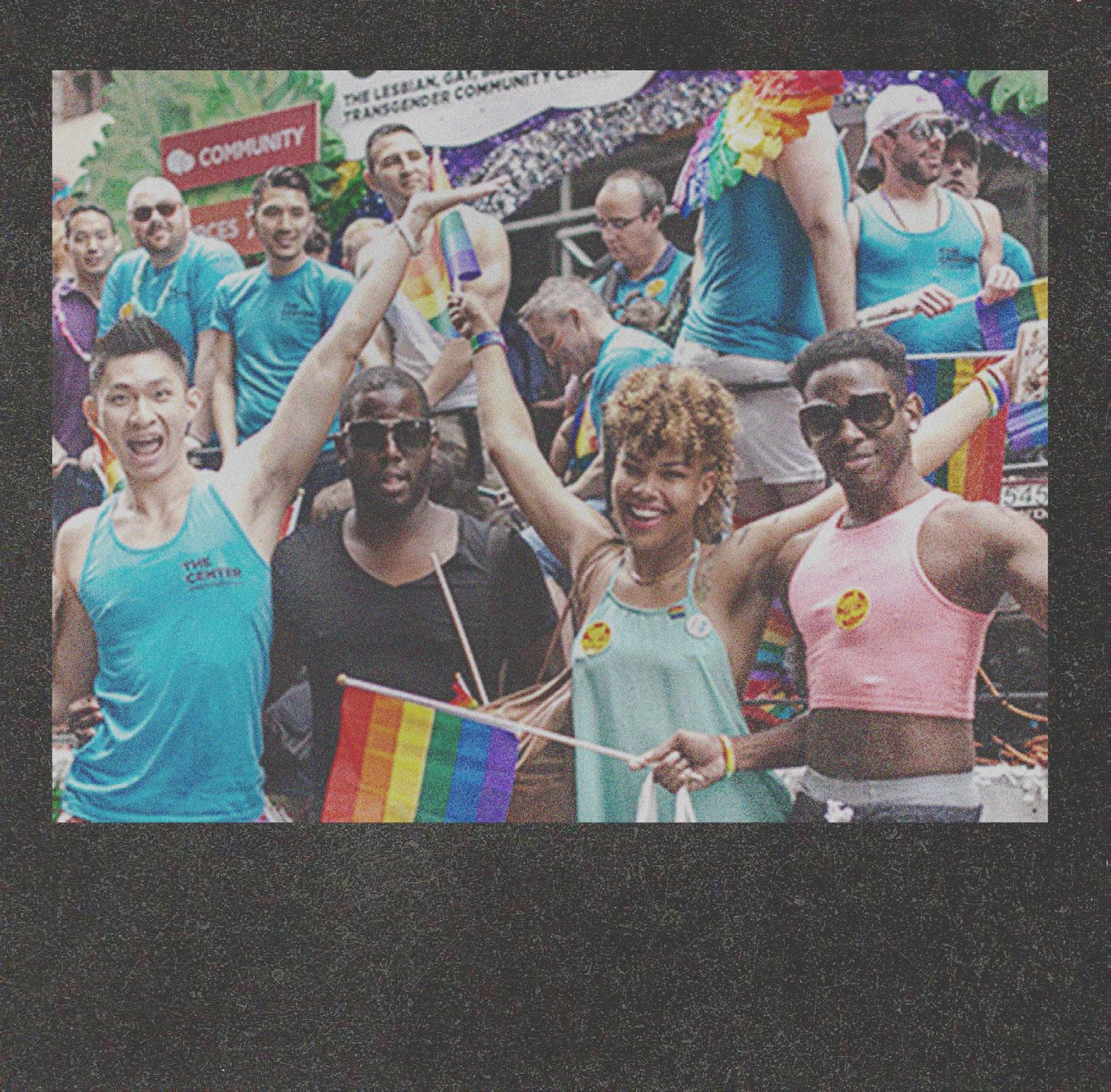

A woman whose enduring physical, romantic, and/or emotional attraction is to other women. Some lesbians may prefer to identify as gay or as gay women.

The adjective describes people whose enduring physical, romantic, and/or emotional attractions are to people of the same sex. Sometimes lesbian is the preferred term for women.

A person who can form enduring physical, romantic, and/or emotional attractions to those of the same gender or more than one gender. People may experience this attraction in differing ways and degrees over their lifetime. Bisexual people need not have had specific sexual experiences to be bisexual; they need not have had any sexual experience at all to identify as bisexual.

An umbrella term for people whose gender identity and/or gender expression differs from what is typically associated with the sex they were assigned at birth. People under the transgender umbrella may describe themselves using one or more of a wide variety of terms— including transgender or nonbinary. Some transgender people are prescribed hormones by their doctors to bring their bodies into alignment with their gender identity. Some undergo surgery as well. But not all transgender people can or will take those steps, and a transgender identity is not dependent upon physical appearance or medical procedures.
terms are used to describe a person’s sexual orientation or gender identity.

An adjective used by some people whose sexual orientation is not exclusively heterosexual or straight. This umbrella term includes people who have nonbinary, gender-fluid, or gender nonconforming identities. Once considered a pejorative term, queer has been reclaimed by some LGBTQIA+ people to describe themselves; however, it is not a universally accepted term even within the LGBTQIA+ community.

An adjective used to describe a person with one or more innate sex characteristics, including genitals, internal reproductive organs, and chromosomes, that fall outside of traditional conceptions of male or female bodies. Do not confuse having an intersex trait with being transgender. Intersex people are assigned a sex at birth — either male or female — and that decision by medical providers and parents may not match the gender identity of the child. Not all intersex folks identify as being part of the LGBTQIA+ community.

The ‘plus’ is used to signify all of the gender identities and sexual orientations that letters and words cannot yet fully describe.
Sometimes, when the Q is seen at the end of LGBT, it can also mean questioning. This term describes someone who is questioning their sexual orientation or gender identity.

The adjective describes a person who does not experience sexual attraction. Sometimes shortened to “ace,” it is an umbrella term that can also include people who are demisexual, meaning they do experience some sexual attraction; graysexual, meaning those who may not fit the strictest definition of the word asexual; and aromantic, meaning they experience little to no romantic attraction and/or has little to no desire to form romantic relationships.
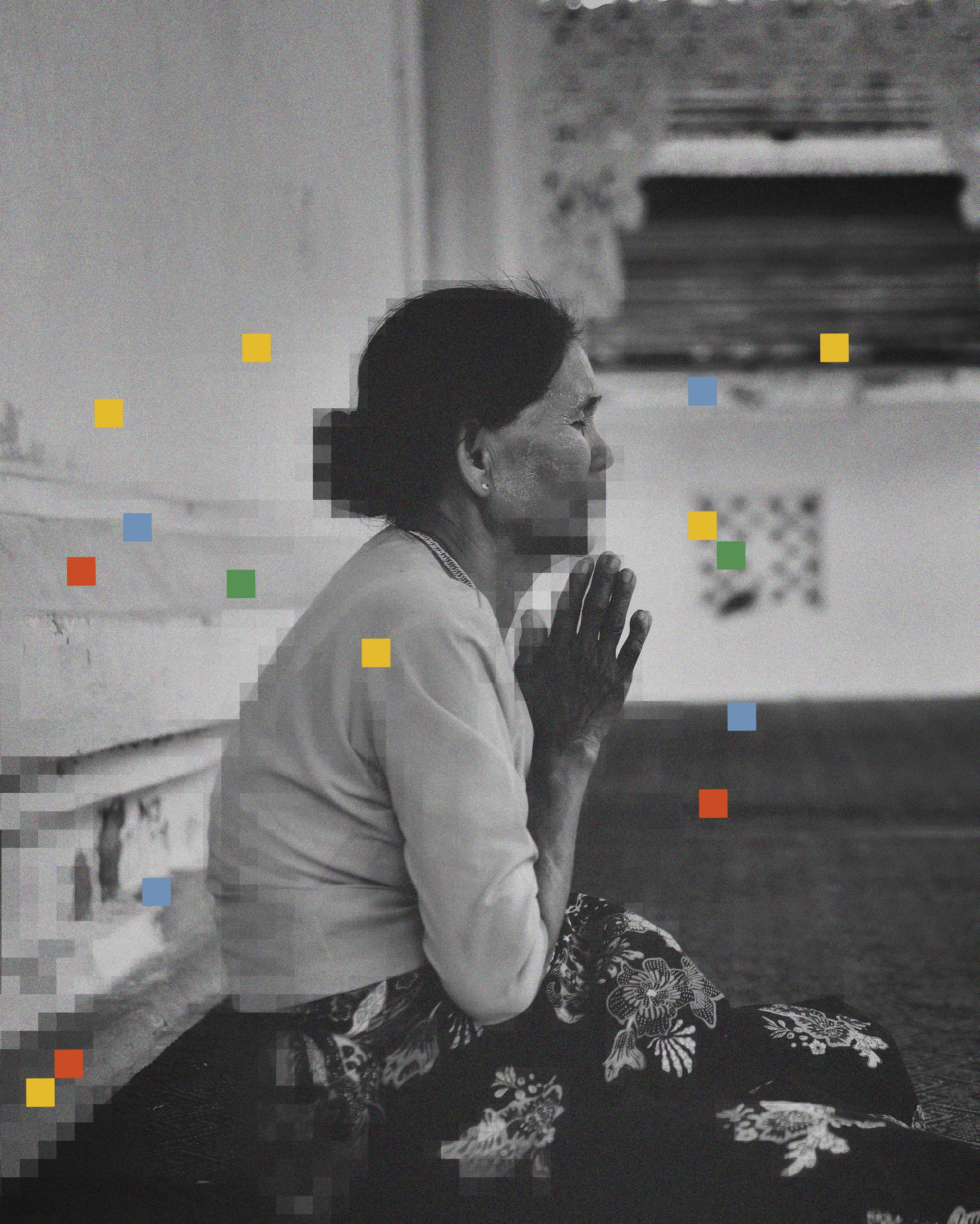
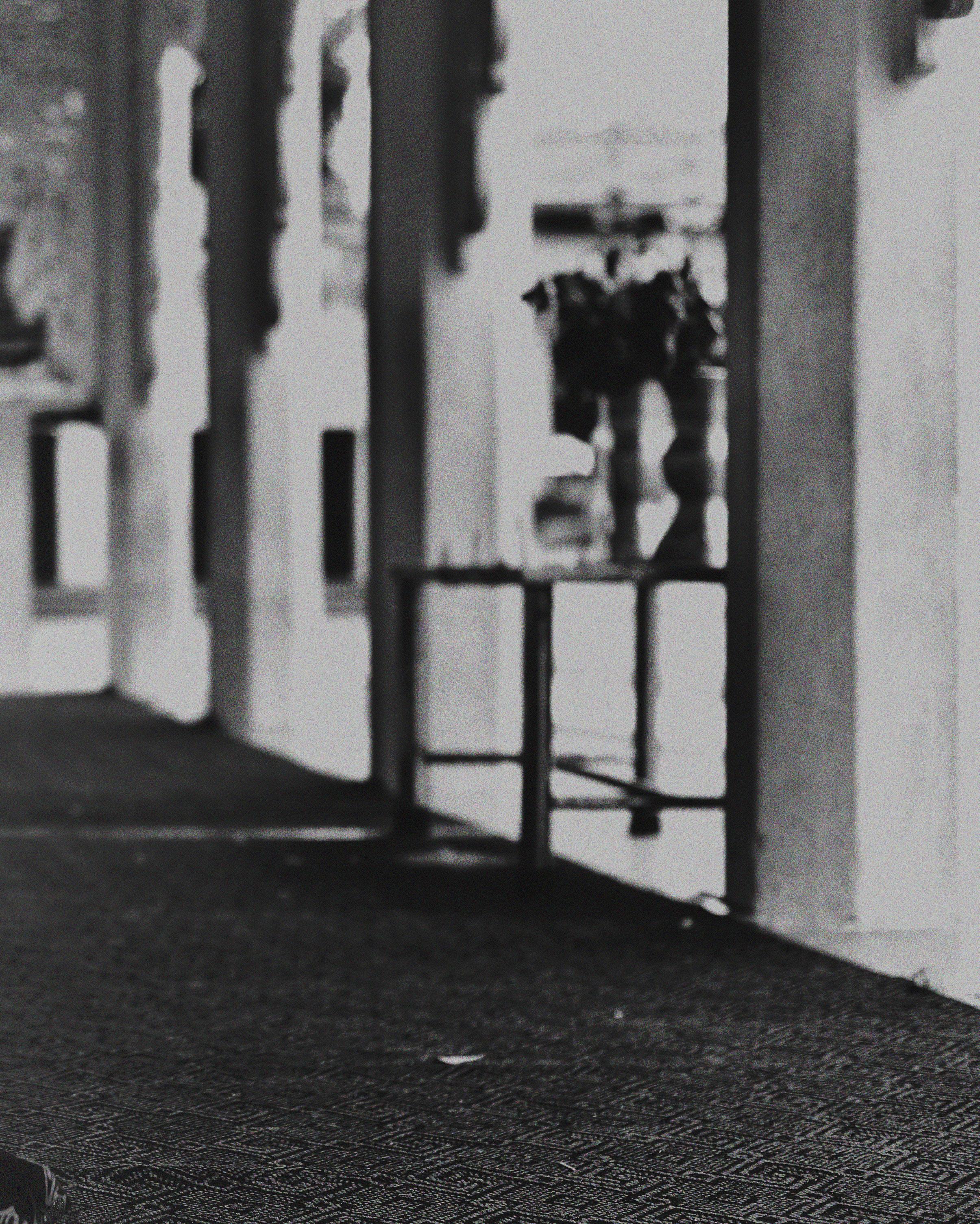
Finding time to have sex can be difficult, especially once kids come along. So when it does happen, you usually want to make sure that you enjoy it.
But that can difficult, especially if you are living in fear of the moment when your child walks in on you having sex. It’s a common fear amongst most parents!
So what is a parent supposed to do? So that they can enjoy the ‘little sex that you have’, without the fear of an audience!
So what are you supposed to do when your child walks in on you (having sex)? Do you just hide under the covers and pretend you were having a playfight? Or do you explain what was really happening?
By Cath HakansonNov 4th 2022
My daughter is 7 years old.
A couple of hours after our daughter went to bed, my husband and I were engaging in sexual activities in our bed when daughter walked in. The door wasn't closed and honestly we have no clue how long she was standing there before she spoke up. She definitely got the whole view. She had thrown up in her bed.
We jumped up and took care of her. Luckily she didn't ask what we were doing. My husband thinks I should address it with her tomorrow so she doesn't ask someone else about it. I'd prefer not to bring it up unless she does. Then do I lie and say she's confused, lie about what we were doing, or do I actually explain? How do I explain it in an age appropriate way without going into lots of detail?



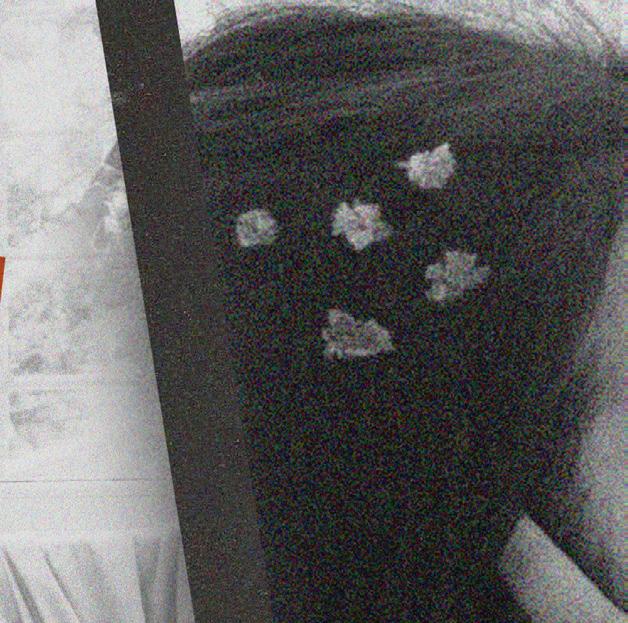

Not all of us are able to come up with a quick witty response for when your child walks in on you. And we all respond differently!
But there are a few things that you can do, that might make it less traumatic for everyone involved!
If your child walks in on you having sex, they usually don’t know what it is that you are doing. They see you and your partner naked, pushing and shoving each other’s bodies and making noises that sound like someone is being hurt. They don’t know that you’re having sex (unless they already know what sex is – which isn’t usually until they are much older). So sometimes they might be scared by what they see. Or they might think you are having fun and try to join in on the fun.
First of all, stop what you are doing.
This is something that you will probably instinctively do. It is a bit like someone throwing a bucket of cold water on you! But just in case you don’t, it is a good idea to stop doing whatever sexual act you happen to be in the middle of. And if your child isn’t used to seeing you naked, it is a good idea to cover the naked parts with some bedding or to quickly throw on some clothing.
What you do next, depends on if it is the middle of the night or the middle of the day.
If it is the middle of the night when your child walks in on you, and your child is half asleep (they usually are when you have night time sex), you should take your child back to their bed. Take them by their hand and gently lead them back to their bedroom. You don’t need to explain what’s happened, unless they ask.
If they do ask what you were doing, and you are feeling brave, you can be honest and say having some private / special / or adult time together. They will just nod their head, or go ‘urgh yuck’ and probably leave it at that. Or you can just distract them by asking them if they want a drink of water. Whatever you say, they will have forgotten what you said, by the morning!
You can investigate what they actually saw and do some explaining, in the morning. Which gives you time to reread this post!
If it is the middle of the day when your child walks in on you, because you have stolen an opportunity whilst the kids were busy doing something else, there are a number of things you can do.
You could distract them by saying ‘ ‘First one to the kitchen gets ice cream!’. That is guaranteed to get them out of the room very quickly whilst you have a chance to recover from the shock of being caught!
Or ask them to go back to whatever they were doing or to leave the room. Or gently lead them out of the room yourself, back to whatever they were supposed to be doing. On the way, you can find out what they wanted.
If they ask a question about what you were doing, just say that you were both having some private /special /adult time together.
If they look scared, reassure them that you weren’t hurting each other (sex to a child can sound like someone is being hurt). If they ask questions, keep your answers short and sweet.
If you feel ready, you can explain what they just saw.

If it is the middle of the night when your child walks in on you, the best time for talking is the next day.
Try starting the conversation with something like ‘Do you remember coming into our bedroom last night?’ and see what response you get.
If they remember, ask them what they think was happening. You could try to ask them, ‘What do you think we were doing when you came in?’.
This way you can find out what they saw and how much they already know about sex, before you respond with an explanation.
If they are under the age of 7 or 8 , just talk about how sometimes mums and dads like to do private things together and that if they felt scared, that there was no need to be scared.
If they don’t remember a thing, you can just leave it at that – it is up to you!
If they are over the age of 7 or 8 , you should probably explain what they saw. This is the age where kids can start to feel uncomfortable talking about sex with parents. So they may just shrug it off, and say they saw nothing.
Let them know that they did nothing wrong and explain to them that you were having sex, which is something that every parents like to do to express their love to each other.
And if you haven’t yet spoken with your child about sex, then it is a great time to start! You might find my parent guide on how to explain sex to kids helpful.
There are also some wonderful childrens books that will help with explaining sexual intercourse to your child.

‘No, we weren’t having a playfight last night’

There are a few things that you can do to prevent your child from ‘catching you’ having sex. You can:
Install a lock on your door (and use it)
Talk to your kids about knocking before entering private spaces ie your bedroom.
Model respectful behaviour by respecting your child’s privacy by knocking on their bedroom door before entering (you can start this with a 3 year old – tap on the door or call out ‘knock knock’ as you come in)
Use soft lighting in the room so that your child won’t see as much (if they do come in)
Play soft music in the background or turn on the television to soften the sounds that you may make during sex (the television may even distract your child’s attention from what else is happening – what child isn’t distracted by the television on entering a room!)
Yes, it can be pretty embarrassing when your child catches you having sex, but it isn’t the end of the world!
Trust me, I’ve worked as a sex therapist.
We might joke about how traumatic it was, seeing our parents having sex, but I have never seen an adult scarred by a childhood viewing of ‘fornicating parents’. They just laugh about how gross it was! It is extremely uncommon for it to have had an impact on their adult sexuality, and if it did, it is becuase it was more than just a random exposure.
But, on a serious note, I have seen many parents who are unable to relax and enjoy sex because of that constant fear of being caught! Luckily, it is a problem that is easily fixed!
Face it, mums and dads - there is going to be a time when you stumble upon your child's online adventures. And you are not going to be happy about it. If you are lucky, you might just catch your child watching a softer version of pornography, and at a much later age.
By Anay BhaleraoMar 28th 2022
I received a voicemail early one Monday morning from a frantic father saying something to the effect of, “my wife and I discovered that our daughter has been watching extremely disturbing sexual videos online and we are just sick about this. We aren’t sure how to handle this, please call us back immediately.”
When I called Jeff and Joanna back they were clearly distraught about this. Their daughter was 12 years old, a great student had good friends, was active, and was the child they never worried about. They have three children, she is the oldest and they never suspected a thing. But when her mother went into her room that morning to get her laundry she noticed that the iPad was under her sheets. Her mother figured she must have sneaked it in her room after bedtime the night before and was annoyed so she wanted to see what she was watching. When she turned the iPad on there were numerous nude images and popups for porn sites. What Joanna saw horrified her. She called in Jeff to come see what she was seeing- in that instance they both felt their daughter’s innocence was robbed.
I had them come in later that morning to discuss how they would approach their daughter after school. They had a lot of questions and wanted a plan of action. Given how common of an issue this is, I was able to provide them with some guidance. The first thing I shared with them was just how common this is. In the US, the average age of first having internet porn exposure is age eleven. That is frightening, I know, we are talking about fifth graders. In terms of top “health” concerns, internet porn ranks in the top 5 issues medical professionals are concerned about. Besides the
Explain to them that what they're seeing isn't the reality
often disturbing visual images that children are exposed to, it is the sexual solicitation requests that follow that are disturbing. The Crimes Against Children Center estimate that 1:7 children and 1:5 teens have been solicited online. Of the children who are solicited online about a quarter of them are thought to tell a parent. Whew… overwhelming I know.
The situation is going to embarrassing for the both of you, here's what you need to know.
Face it, mums and dads - there is going to be a time when you stumble upon your child's online adventures. And you are not going to be happy about it. If you are lucky, you might just catch your child watching a softer version of pornography, and at a much later age.
But trust me, there is soon going to be a time when the child's curiosity is going to expose them to the deviant, ugly side of pornography unless you do something about it.
Pornography was hard to access a few years back. There were human filters to obtain it. And even the themes of pornographic magazines and videos were much less perverted than what they are now. Today, a pornographic website is a trap.
Not only are there links to explore, the advertisements and popups are potentially dangerous to an uninitiated mind. They are designed in such a manner that a person keeps on visiting them, even if he or she does not want to.

The act has already occurred, and nothing can change that. It's essential, although challenging, to handle this situation calmly. Avoid reacting impulsively. If you discover them in the act, calmly explain that it's inappropriate and that you'll discuss it later, ensuring your tone is non-threatening.
Sit down with your partner and prepare some key points for discussion.
t's crucial to address the issue clearly while simplifying it, so your child can fully understand that pornography often is a highly distorted representation of reality.
Have the discussion on the same day if possible, but take a moment to collect your thoughts first. Ideally, both partners should be present for the conversation.


Use those talking points and discuss pornography with your child. It is not the time for euphemisms. It is better to be honest, and use appropriate biological terms to discuss the process. So it is 'penis', 'vagina' and 'breasts' instead of 'dick', 'pussy' and 'boobs'. This way, you show your child that sexual intercourse is a process not to be denigrated by using derogatory words for body parts.
Base the discussion on these steps.
Step 1: Tell them that you know about their exposure to pornography.
Step 2: Tell them that it is OK, and they should not be ashamed of discussing sex. And it is natural to be aroused by watching pornography. Most of the children want to talk about sex, but don't know whom to approach. Therefore, as parents, you are one of the best sources of satisfying your child's curiosities, not how actual sexual intercourse happens.
Step 3: Tell them it is not how actual sexual intercourse happens. Share your views about sex. Stress on the emotional aspect of physical intimacy.
Step 4: Convince them that pornography is rarely a depiction of the actual thing. Their body is going to change and chances are that it will not look like what they saw in the video. Tell your child that the body parts he or she might have witnessed are by no way a standard against which their self-esteem should be measured.
4. Make it clear with your kids that it is not ok to continue watching pornography
At the end, don't forget that your child is just a child. So, stress on the fact that there is much more to watch than pornography. There is an appropriate age for the consumption of alcohol. Likewise, there is an age after which, it is 'OK' though not recommended to watch pornography.

Trust me, your child is brimming with questions. Encourage them to ask you instead of someone else. Answer as directly as possible. Find the accepted terms for the various acts they might have seen. This will help keep the discussion sensible.
The most important thing, and I am stressing it again, is not to put fear or shame in your child's mind. If you do that, they are not going to stop watching porn. They will just make sure that you do not find out about it. And that is potentially disastrous.

The next thing to do is investigate the source. Find out how he/she came across it. Was it an internet search? Did he/she accidentally stumble across it while watching something else? An easy way is to search the browser history. This will tell you exactly when it all began, and how much your child has been exposed.
The next thing you do is install parental controls. Even though Google can control the search results to a large extent, you still need a Parental Control System for all of your devices.
Delay the time your child actually 'owns' a device. Keep the computer in the living room. By doing this, your child will stick to their project than venturing on their own. And, if you have a younger child, avoid unsupervised screen time. You do not know what kind of content she might just be exposed to.
Mums and dads, this is a situation you are going to face some day. Better be prepared!
"Coming out" is a lifelong journey of understanding, acknowledging and sharing one's gender identity and/or sexual orientation with others. It may be quick and easy for some, or longer and more difficult for others.
It is important for parents of lesbian, gay, bisexual, transgender, and questioning (LGBTQ) teens to remember each child is unique and will have their own experiences and feelings along the way.
"Coming out" is a lifelong journey of understanding, acknowledging and sharing one's gender identity and/or sexual orientation with others. It may be quick and easy for some, or longer and more difficult for others.
It is important for parents of lesbian, gay, bisexual, transgender, and questioning (LGBTQ) teens to remember each child is unique and will have their own experiences and feelings along the way.
Feelings of being "different" emerge throughout childhood, although it may not be clear to the child what the feelings means. Children may begin exploring gender and relationships before kindergarten, so "coming out" and sharing these feelings of being different with others may happen at any time. For many kids, gender identity becomes clear around puberty as they develop gender characteristics and stronger romantic attractions. However, many LGBTQ teens have said, in retrospect, that they began to sense something "different" about themselves early in life, and for gender diverse youth, sometimes as far back as preschool.
It is common for LGBTQ teens to feel scared or nervous during this stage. Some can start to feel isolated from their peers, especially if they feel that they don't fit in or are given a hard time for being different. Just remember that children who feel loved and accepted for who they are have a much easier time.
Play an important role advocating for safe spaces where their child can explore interests without judgment or stereotypes.
Support diverse friendships and social involvement without focusing on expectations around gender.
Provide exposure to people working and enjoying activities outside of conventional gender expectations.
Engage in conversations and check regularly with your children about their interests, friend groups, romantic attractions, and any bullying or teasing that may be taking place.
"I think I might be gay (or lesbian, bi, or trans), but I'm not sure, and I don't know how I feel about that..."
Beyond simply feeling "different," young people may begin to wonder if they might be gay, lesbian, bisexual, transgender, or prefer another label. Many teens experience mixed emotions as they adopt a new way of identifying, often feeling a combination of excitement, relief, and anxiety.
Many children may suppress these feelings to meet societal expectations, fit in, or avoid upsetting their parents or families. In some cases, the overwhelming nature of these feelings can increase the risk of depression, anxiety, and other mental health issues. For instance, they may isolate themselves from others for fear of being exposed or "outed." Some teens may feel very alone, especially if they live in a community without an active LGBTQ+ youth support system. Having a supportive home environment and strong friendships can help teens manage their feelings and cope with any discrimination they may face.
"I accept that I'm gay, but what will my family and friends say?"
Teens may accept that they are LGBTQ but not yet ready to start sharing this information with anyone yet. Some will feel comfortable being open about their identity, while other teens may not tell anyone for a long time. Teens may look for clues on how you feel about their gender identity and sexual orientation. Speaking positively about LGBTQ celebrities or current events you will let them know you are supportive of their identity.
Society has become more open and accepting of LGBTQ individuals, and young people are beginning to come out at earlier ages than they did a generation ago. Children may first come out to online communities or peers they perceive as safe and accepting before telling their family.
It is important for parents and children to realize that acceptance is a process that involves the entire family. Just as it takes time and support for LGBTQ children to understand and accept their identity, this is also true for parents.
"I've told most of my family and friends that I'm gay (or lesbian, bi, or trans)."
Teens feel secure enough in who they are and share that information with loved ones. It takes courage and strength for a young person to share who they are inside, especially for teens who are unsure of how their families will respond. They may be afraid of disappointing or angering their families, or in some instances may fear being physically harmed or thrown out of their homes. Again, parents usually need time to deal with the news. While it may take them days, weeks or many months to come to terms with their child's sexuality or gender identity, it is important for parents to show love and support for their child, even if they don't fully understand everything.
Coming out to others can be a liberating experience, especially for those teens who are embraced by their communities and families. LGBTQ teens may feel free to speak openly about their feelings and possibly romantic relationships for the first time. For transgender and gender diverse teens, they may finally feel free to begin expressing themselves genuinely as the gender they feel inside.


Even if you are having trouble understanding your child's identity or feelings, not withdrawing from your role as a parent is probably one of the most important ways to help a child continue to feel a sense of being cared for and accepted. Feeling loved has been shown to be critical to overall health and development of all children regardless of gender or sexual orientation. Many parents do need their own supports to help them understand and cope with their own difficult emotions and concerns during a child's "coming out."

When your child discloses their identity to you, respond in an affirming, supportive way. Understand that although gender identity is not able to be changed, it often is revealed over time as people discover more about themselves.
Accept and love your child as they are. Try to understand what they are feeling and experiencing. Even if there are disagreements, they will need your support and validation to develop into healthy teens and adults.
Stand up for your child when they are mistreated. Do not minimize the social pressure or bullying your child may be facing. See How You Can Help Your Child Avoid & Address Bullying.
Make it clear that slurs or jokes based on gender, gender identity, or sexual orientation are not tolerated. Express your disapproval of these types of jokes or slurs when you encounter them in the community or media.
Be on the look out for danger signs that may indicate a need for mental health support such as anxiety, insecurity, depression, low self-esteem, and any emotional problems in your child and others who may not have a source of support otherwise.
Connect your child with LGBTQ organizations, resources, and events. It is important for them to know they are not alone.
Celebrate diversity in all forms. Provide access to a variety of books, movies, and materials—including those that positively represent gender diverse individuals. Point out LGBTQ celebrities and role models who stand up for the LGBTQ community, and people in general who demonstrate bravery in the face of social stigma.
Support your child's self-expression. Engage in conversations with them around their choices of clothing, jewelry, hairstyle, friends, and room decorations.
Reach out for education, resources, and support if you feel the need to deepen your own understanding of LGBTQ youth experiences. See Support Resources for Families of Gender Diverse Youth.
Title of the book
ME,I Guidebook
Course
GR810: Thesis
Instructor
Laurie Makela
Printing & Binding
Blurb.com
Typography
AXIS
DIN
Contact
Xiyu / Kimberley Zhang Kimberleyzhang23@gmail.com
Degree & School
Academy of Art University Graphic Design MFA
Paper
Mohawk Superfine Eggshell 100# Text
Copyright @ 2024 Xiyu / Kimberley Zhang
All copyright reserved. No part of this publication may be reproduced, stored in a retrieval system, or transmitted in any form or by any means, including but not limited to electronic, mechanical, photocopying, recording, or otherwise, without the prior written permission of the copyright holder.
